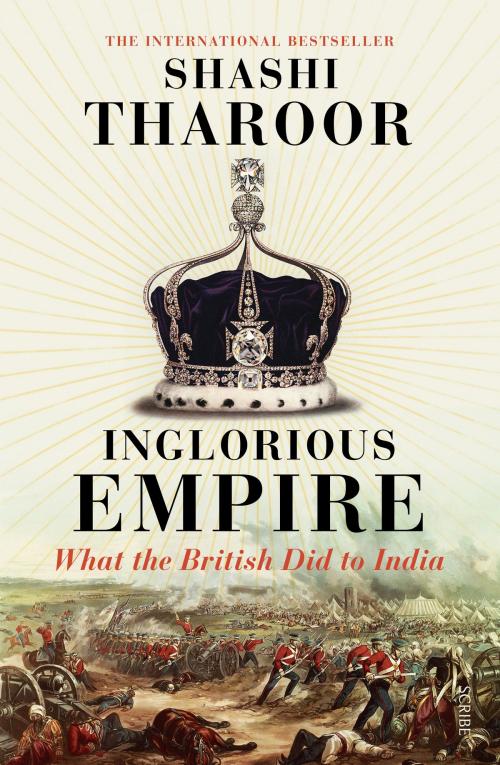Inglorious Empire
what the British did to India
Nonfiction, History, Asian, India, Social & Cultural Studies, Political Science| Author: | Shashi Tharoor | ISBN: | 9781925548518 |
| Publisher: | Scribe Publications Pty Ltd | Publication: | July 31, 2017 |
| Imprint: | Scribe | Language: | English |
| Author: | Shashi Tharoor |
| ISBN: | 9781925548518 |
| Publisher: | Scribe Publications Pty Ltd |
| Publication: | July 31, 2017 |
| Imprint: | Scribe |
| Language: | English |
Inglorious Empire tells the real story of the British in India — from the arrival of the East India Company to the end of the Raj — and reveals how Britain’s rise was built upon its plunder of India.
In the eighteenth century, India’s share of the world economy was as large as Europe’s. By 1947, after two centuries of British rule, it had decreased six-fold. Beyond conquest and deception, the Empire blew rebels from cannon, massacred unarmed protesters, entrenched institutionalised racism, and caused millions to die from starvation.
British imperialism justified itself as enlightened despotism for the benefit of the governed, but Shashi Tharoor takes on and demolishes this position, demonstrating how every supposed imperial ‘gift’ — from the railways to the rule of law — was designed in Britain’s interests alone. He goes on to show how Britain’s Industrial Revolution was founded on India’s deindustrialisation, and the destruction of its textile industry.
In this bold and incisive reassessment of colonialism, Tharoor exposes to devastating effect the inglorious reality of Britain’s stained Indian legacy.
Inglorious Empire tells the real story of the British in India — from the arrival of the East India Company to the end of the Raj — and reveals how Britain’s rise was built upon its plunder of India.
In the eighteenth century, India’s share of the world economy was as large as Europe’s. By 1947, after two centuries of British rule, it had decreased six-fold. Beyond conquest and deception, the Empire blew rebels from cannon, massacred unarmed protesters, entrenched institutionalised racism, and caused millions to die from starvation.
British imperialism justified itself as enlightened despotism for the benefit of the governed, but Shashi Tharoor takes on and demolishes this position, demonstrating how every supposed imperial ‘gift’ — from the railways to the rule of law — was designed in Britain’s interests alone. He goes on to show how Britain’s Industrial Revolution was founded on India’s deindustrialisation, and the destruction of its textile industry.
In this bold and incisive reassessment of colonialism, Tharoor exposes to devastating effect the inglorious reality of Britain’s stained Indian legacy.















